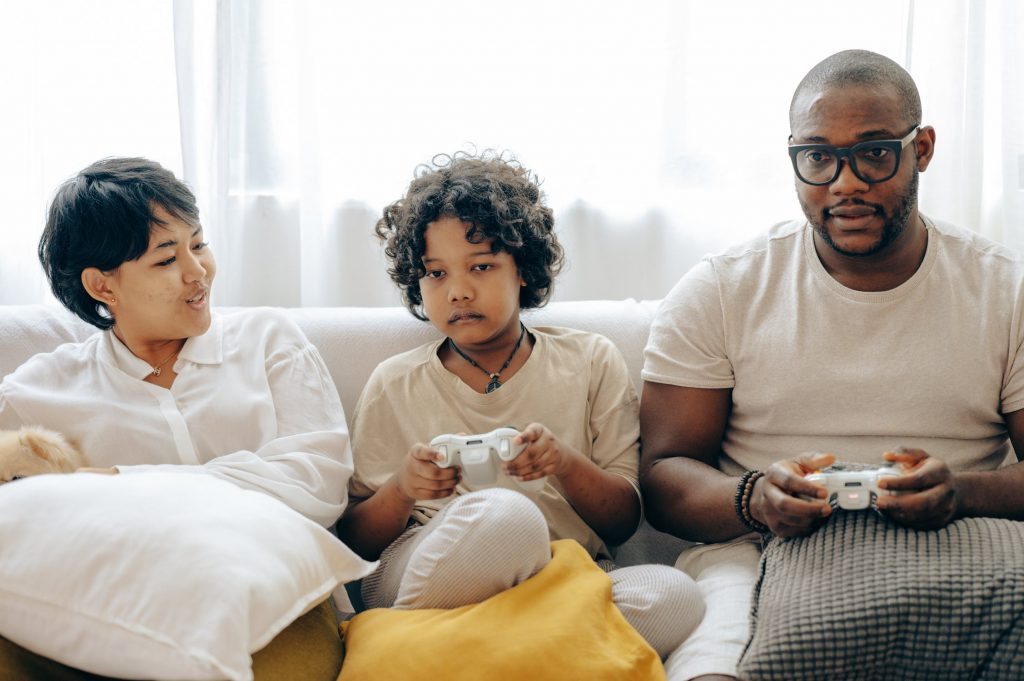Gaming is a popular form of entertainment for people of all ages. However, it can become an addictive hobby for the younger lot. According to Statista, this hobby among children has shown a consistent increase from 2019 to 2023. In 2023, American children and teens spent 140 minutes daily playing Roblox games on mobile. The number is clearly a warning bell for parents.
If you are a working parent, you may worry more because you cannot be around. However, you must encourage a balanced approach considering the increase in screen usage. With parental guidance, children can learn self-control and responsibility. As a parent, you need to take a strategic approach in this context. You cannot stop kids altogether, but you must set boundaries.
In this article, we will share a few actionable tips to inculcate gaming discipline and responsibility in your children.
Understand the impact of gaming
The first step is to understand the impact gaming can have on your kids. Surprisingly, it can be good and bad. A study by UNICEF highlights the positives, citing how playing games can develop a sense of autonomy and control in children. Additionally, it equips them with critical thinking, problem-solving skills, and cognitive skills. Multiplayer games encourage social engagement.
However, these benefits are possible only if games are designed carefully. The negative effects can be concerning, with the possibility of gaming addiction among youngsters. Spending too much time glued to the screen can result in a sedentary lifestyle and a decrease in physical activity.
The negative effects are evident in society, with countless children struggling with addiction. In fact, the ongoing video game addiction lawsuit is an instance that shows the severity of this problem. Many families have filed this lawsuit, seeking compensation for mental health issues, financial losses, and emotional distress.
TorHoerman Law names AAA games like Fortnite, Roblox, and Call of Duty as being involved in this lawsuit. These games have been designed to be addictive, yet they fail to warn users about the risks involved. A coordinated plan for gaming is essential since excessive time spent playing games can hurt academic achievement, and can also limit the development of social skills.

Set boundaries for gaming
Clearly defining gaming limits is crucial to helping kids maintain a good balance. It is even more crucial for working parents who cannot be around most part of the day. At this point, you must know how much is too much for your kids.
According to OSF Healthcare, children aged under 2 should have zero screen time, while those in the age group of 2-5 years should be allowed only an hour. The 5-17 age group should be given two hours of a day as screen time, and not all of it should be for playing games. Setting clear guidelines for game time limitations enables kids to comprehend expectations and manage their screen usage.
You can promote regular routines for children to ensure they do not spend all their time on screens. Even when you are not home, you should stay connected. Prioritise homework, exercise, and family time when you are with your children. These guidelines can help ensure that playing games stays an enjoyable and well-balanced aspect of their daily routine.
Create a family agreement
Consider having a collective agreement to avoid gaming addiction in your children while you are away at work. This will help them develop a sense of accountability and ownership. Have conversations about appropriate gaming hours and set actionable penalties for rule violations.
However, remember not to be too aggressive, and develop a gentle yet firm mindset. Children are motivated to take the standards seriously with a cooperative approach. Also, keep a watchful eye on and provide assistance regarding their gaming habits.
Parents should monitor online interactions and gameplay to make sure kids have safe and enjoyable experiences. KidsHealth recommends playing games and testing apps before allowing your children to use them. Consider playing games with them initially to have a good time together and decide whether these are right for your kids.

Use parental control tools
Parental control tools can help you keep an eye on kids’ gaming habits even as a busy working parent. A lot of gaming platforms and devices have built-in parental control features. With these features, parents can monitor online activity, enforce time limits, and restrict access to certain content.
Parental controls serve as valuable resources that support responsible gaming practices and foster a safer gaming environment. Parents can help their kids make healthy decisions by understanding and explaining when and where they are losing their way. This will promote a balanced approach to gaming that puts fun and safety first.
Implement discipline strategies
A balanced gaming environment for children depends on efficient disciplinary techniques. Clear penalties for breaking the rules help kids know the consequences of their behavior. At the same time, they highlight the value of following set rules.
Furthermore, positive reinforcement is a good way to promote rule compliance. You can give rewards for excellent behaviour, such as staying within gaming restrictions. Rewards encourage kids to make wise choices and create a positive environment surrounding gaming and commitment.

Frequently Asked Questions
How much screen time is appropriate for children?
Tweens and teens should not spend more than two hours a day on screens. For toddlers, screen time should be off-limits. Whether you are a working or stay-at-home parent, you must set strict rules regarding these timelines. Make them non-negotiable so that children develop a habit of limited gaming time.
What are effective ways to set gaming limits?
Parents must exercise their control and guidance to set realistic and healthy gaming limits for their children. You can promote accountability with clear guidelines as a family. Also, make a calendar that integrates gaming time, and include your kids in decision-making.
How can I monitor my child’s online interactions while respecting their privacy?
Keep yourself updated on the internet interactions of your children. You should also know about the games they play as some games have harmful and inappropriate content. Talk openly with your child about internet safety so they know you care about their security and understand the value of privacy.
Encouraging youngsters to develop good behaviours requires a balance between freedom and responsibility. Children can be guided toward responsible gaming by parents who establish clear guidelines and keep an eye on them. Active and involved gaming habits help kids build important life skills while strengthening family ties.
Don’t worry if you are a working parent balancing time at work and home. You can raise smart and sensible gamers by following these rules. And remember gaming can also be a force of good, as covered in our recent piece about the UK’s first Gamer-n-Residence.
For even more lifestyle & general pieces like this, click right here.